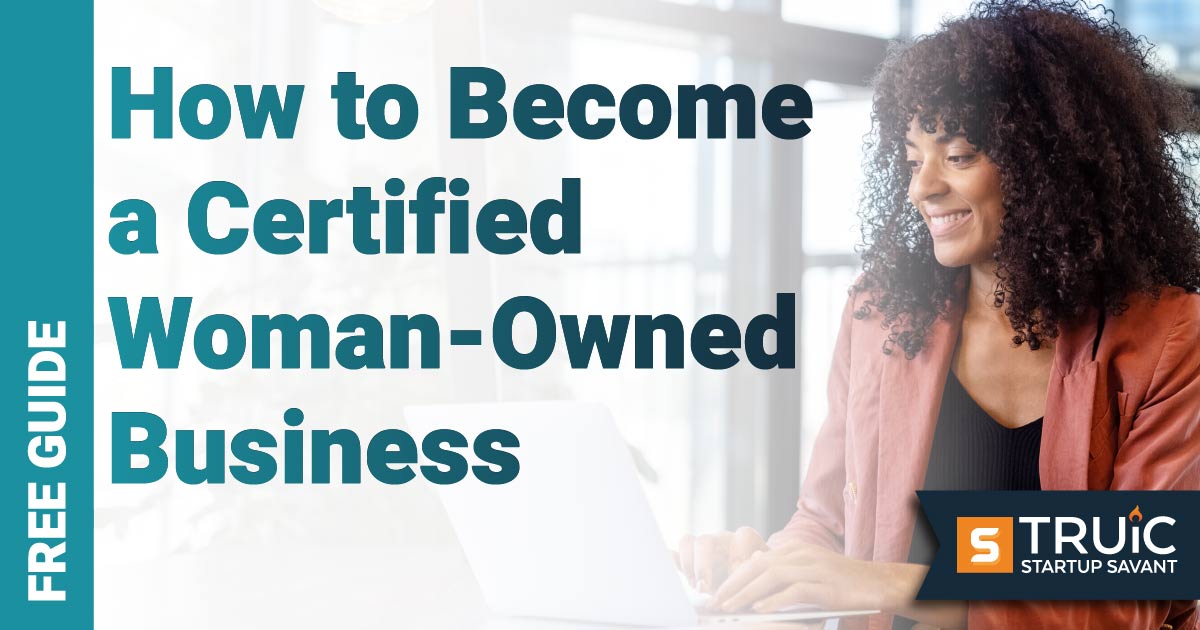Investors for Female Entrepreneurs
Find Funding Through Angel Investors, Venture Capital Firms, and More

Last Updated: By TRUiC Team
If you’re contemplating starting a business or are ready to expand your existing one, you may be considering additional funding. Investors for female entrepreneurs are a great way to accomplish your professional goals, but do you know how to choose the right one for your startup?
We will break down a list of investors out there, explain the different types (e.g. angel investors, venture capital firms), what they can do, and weigh the pros and cons, so you can decide which one is best for you. Depending on your needs, they may all come in handy throughout the life of your business.
Investors for Women Entrepreneurs
Looking for business funding? We've shared a list of investors for female entrepreneurs and explored the various types. Simply continue scrolling or use our jump-ahead links to get started.
Skip Ahead To:
Friends and Family
We all have supportive friends and family we can rely on. If you have a great idea, you can talk to them about your vision, business plan, and your future company goals.
Friends and family can be a useful resource and if your business turns out to be a success, everyone in your immediate circle wins.
Who This Is For
These investors are best for startups or even an idea or pre-startup phase.
Pros
- The good news is that this type of investor already knows you well, so your trust should already be established.
- Family members may be more forgiving if things don’t work out as planned.
- No credit score needed unlike with business bank loans.
- A good first option for funding your startups.
Cons
- You need to make sure these are close, trusted friends to avoid people from backing out.
- It can be difficult to ask friends or family members for financial assistance, especially if they are not entrepreneurs and find it difficult to see your vision.
Angel Investors
You may have heard the term angel investor, private investor, seed investor, informal investor, and business angel. These names all mean the same: people who are willing to invest in your startup in exchange for some ownership equity in your company.
In other words, they are giving you money, but want to own part of the business too so they can regain the money they will have provided you. They will also continue to get paid a portion of your profits since they will be part owners.
Angel investors are generally affluent people who want to help get your business started because they can see your vision. They may also be business owners who can provide you with helpful advice.
According to the U.S. Small Business Administration Office of Advocacy (SBA), they provide $330,000 on average to startups and are looking to make around 20% profit off the initial investment.
Who This Is For
Angel investors are better suited to help startups, especially those that fit within a particular niche market.
Pros
- They provide funding for startups.
- It’s a good option if your company doesn’t have enough cash flow or business credit to take out loans.
- They are less risky than traditional investors.
- The debt is not expected to be paid back in case of failure.
- They will provide plenty of helpful information and expertise.
- There are flexible terms within the agreement since they are investing their own money when compared to larger venture capital firms who invest other people’s or corporate money.
- They offer connections through a wide network that can help your business.
Cons
- They will usually request equity in your company.
- The investors will have a say in the direction your company takes.
Where Do I Find Angel Investors for Women Businesses?
You may be wondering where you can find angel investors to help fund your business. Luckily, you can find them at pitch events, online, or through their network.
The good thing is that even if you reach out to potential angel investors, they may recommend you to better sources since they know other people looking for investment opportunities that align with your company’s specific needed expertise.
Here are some angel investors to consider if you’re a female entrepreneur looking for funding specifically tailored for women-owned businesses:
- 500 Women
500 Women is a large venture capital firm with over one hundred members within twenty countries. This fund has invested in over 2,200 companies through their four global funds and has contributed capital to companies like Tradesy, The Muse, Bustle, and many more. Find out more about their startups here or check out their portfolio. - Astia
Astia is an early-stage investment organization that provides training and support to startup companies. Their portfolio includes companies such as Full Harvest, Modsy, RowAnalytics, and TerViva. They set out to provide capital to female entrepreneurs. - Chloe Capital
Chloe Capital invests in female-led startups that focus on the technology sector. Their founding member has over 20 years of experience investing in a wide array of different companies. - Female Founders Fund
This fund is in the business of investing in female entrepreneurs. They specifically focus on e-commerce, technology services, web-enabled products, marketplaces (connecting buyers and sellers through B2B), and technology platforms that connect networks to communities. Their expertise lies in startups. - Next Wave Impact
Next Wave Impact is an early-stage investment fund that focuses on women-owned businesses. It’s composed of 99 female investors with 25 of them being women of color. They exemplify diversity and social impact on an internal and external level. - Intel Capital Diversity Initiative
This fund sets out to invest in women-led businesses and underrepresented minorities. They have also expanded their reach to fund businesses owned by LGBTQ individuals, U.S. veterans, and individuals with disabilities. - Mergelane
Mergelane invests in startups. They have a one-woman leader minimum requirement for the companies they fund. They’ve been investing in businesses since 2015 and have helped 42 companies get started. Their extensive network is composed of 300 mentors and 600 investors. - Laconia Venture Asset Management (LVAM)
Laconia Capital focuses on early-stage funding. Their core value philosophy is inclusive and promotes “transparency, community, and collaboration.” They seek businesses whose CEOs know their numbers and how they relate to capital strategy. They look for sales ability, humility, confidence, integrity, and diversity in their potential partnerships. - Forerunner ventures
This early-stage fund is committed to helping women. They have worked with Serena & Lily amongst many other great companies. - FirstMark Capital
This New York City-based investment fund is geared toward early-stage funding. They have invested in a wide array of companies such as Pinterest, Shopify, and Airbnb just to name a few. - BBG (Built by Girls) Ventures
BBG focuses on funding female-owned internet startups. They specialize in early-stage funding for tech companies. Their main interest lies in products and services that simplify life. - Pipeline
Pipeline has a unique platform where high-performing entrepreneurs invest in developing themselves, while they also invest time, talents, and capital for other business owners. This network expands even further when necessary by accessing other capital resources nationally. - Springboard Enterprises
This is a group of investors that come with the added benefit of innovators, influencers, and advisors for high-growth technology-oriented women-owned businesses. This is a great advantage as they will have the necessary network to present and expose your business from the start. As a non-profit organization, they emphasize bridging the gap for women, not only in the US but globally. - Golden Seeds
This angel investment firm is based out of New York City with additional chapters in Atlanta, Boston, Dallas, Houston, and Silicon Valley. They fund early-stage startups with high-growth potential. - Belle Capital, LP
This is an early-stage fund with an interest in “disruptive technology.” Entrepreneurs interested in working with Belle Capital must have at least one female founder or C-level executive, and/or be willing to recruit top female talent to the C-suite and Board of Directors. If you’re ready to pitch your idea on their website, click here. - Tory Burch Foundation Capital Program
Tory Burch Foundation has partnered with Bank of America to provide affordable loans to women entrepreneurs in the startup phase. Businesses who apply must have a sustainable business, satisfactory credit, two years in business, and be ready for growth. - Valor Ventures
Based out of Atlanta, Valor Venture specializes in funding female and minority-owned businesses. They support the founders of companies that specialize in software products. - Women’s Venture Fund
The Women’s Venture Fund is a nonprofit organization that sets out to invest in businesses based out of urban communities. They provide “entrepreneurial training, technical assistance, advisory services, and small loans.” - Salesforce Ventures
Salesforce Ventures invests in startups, specifically with cloud companies. They have been around since 2009 and have funded over 300 businesses in the technology sector. They have funded Dropbox, Moneytree, CloudSense, and many more. For a comprehensive list of companies, they have invested in click here. - Southbox Ventures
Southbox Ventures is an early-stage fund. They focus primarily on film, ad-tech, and media-tech companies. - SoGal Ventures
SoGal Ventures is the first female-led millennial venture capital firm. They provide female-owned startups with funding opportunities. - General Catalyst
General Catalyst is an early-stage investment firm. They have funded companies such as Airbnb, Bustle, HubSpot, Atrium, Gusto, Grammarly, RueLaLa, The Honest Co., Venmo, Vroom, and Wag! Click here if you’re interested in a list of their full portfolio.
Venture Capital Firms
Female-oriented and women-owned venture capital funds are on the rise. This is due to more women starting their own businesses.
Women have traditionally been underfunded, but double their return on investments when compared to their male counterparts; so it’s no wonder that female venture capitalists are ready to back up their fellow female entrepreneurs. After all, it’s statistically a smarter and more profitable investment.
Who This Is For
These are for more established, profitable businesses who are looking to expand.
Pros
- They will invest on average $11.7 million (according to the SBA).
- Your company will have more resources to become successful.
- You can expand your business.
- If properly managed, you can exceed expected financial growth and success.
- Large network for company support.
Cons
- The terms may be more stringent.
- More financing can mean higher risk.
- A higher return on investment is expected.
- Venture Capital partners will be fully involved since more money is at stake.
- If necessary, your company may completely change direction from your original vision.
- Liquidation of the company if it’s not producing at the expected rate.
- Shareholders will have a say in strategies or direction of the company.
Here are some of the best large venture capital funds that are a sure bet to care about women and their businesses:
- New Enterprise Associates
New Enterprise Associates (NEA) is a large, global fund composed of ten members whose focus lies in technology and healthcare. They’re active investors, particularly in growing markets such as China and India. - Hypatia Capital
Hypatia Capital is a private equity firm that specializes in funding female-owned businesses. Their interests lie within products, education, financial technology, media, retail, services, and technology. - Greycroft
Founded in 2006, Greycroft is a venture capital firm that supports large-scale enterprises. They run two funds at $265 million and $365 million, generally investing between $100,000 to $5 million at first. A few additional $10 million may be invested after the first capital contribution, depending on each company’s needs. - Kleiner Perkins
Kleiner Perkins is a large firm that not only specializes in startups, but is well-versed at the growth and expansion capital phase. They have experience working with innovative technology, consumer, life sciences, health and medicine, financial services, internet, pandemic and biodefense, educational software, and infrastructure markets. Some of the companies they have funded include Nest, Google, Spotify, Amazon, Peloton, Genentech, Intuit, Figma, DocuSign, Handshake, Netscape, AOL, Tesaro, Align, Citrix, VeriSign, Ring, and many more. If you’re interested in viewing a more comprehensive list of their partnerships, click here.
Check out our article on John Doerr, chairman of Kleiner Perkins!
With all these resources available and statistics showing the impressive numbers female-led businesses are producing, you can start your company and bet your business on women.


